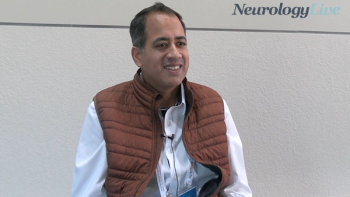
The professor of neurology at Johns Hopkins Medicine discussed the trial design of the phase 4 RENEW study assessing the long-term safety profile of mitoxantrone in multiple sclerosis. [WATCH TIME: 9 minutes]

The professor of neurology at Johns Hopkins Medicine discussed the trial design of the phase 4 RENEW study assessing the long-term safety profile of mitoxantrone in multiple sclerosis. [WATCH TIME: 9 minutes]
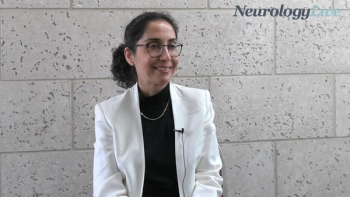
The assistant professor of neurology at Johns Hopkins Medicine talked about her preclinical research in immunology to explore the intricate mechanisms controlling chronic inflammation in the central nervous system. [WATCH TIME: 5 minutes]

The professor of neurology at Johns Hopkins Medicine discussed the limited impact of current therapies on retinal atrophy rates in progressive multiple sclerosis at the 2024 ACTRIMS Forum. [WATCH TIME: 5 minutes]
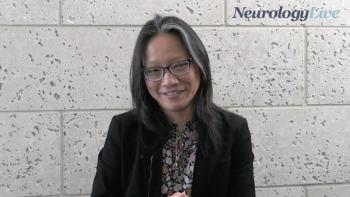
The director of the Multiple Sclerosis Program at the Cleveland Clinic’s Lou Ruvo Center for Brain Health discussed findings from a study that compared cognitive profiles between patients with multiple sclerosis and Alzheimer disease. [WATCH TIME: 5 minutes]

The assistant professor of neurology at Johns Hopkins Medicine talked about recent research that suggests activating the NLRX1 pathway could offer neuroprotection in multiple sclerosis. [WATCH TIME: 5 minutes]
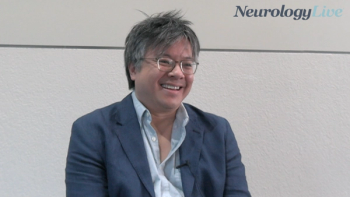
The associate professor of biology at Georgetown University talked about how immune cells can communicate with brain cells to enhance repair processes, which may offer potential treatment targets for multiple sclerosis. [WATCH TIME: 5 minutes]

Mind Moments®, a podcast from NeurologyLive®, brings you an interview with Daniel Ontaneda, MD, PhD. [LISTEN TIME: 32 minutes]

The professor of neurology at Johns Hopkins Medicine talked about modeling visual systems as an area of focus in clinical trials for multiple sclerosis as it may offer insights into neurodegeneration and neuroprotection. [WATCH TIME: 6 minutes]
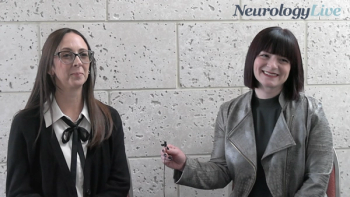
The associate vice president of clinical Innovation and strategy and the health equity director at National MS Society talked about leveraging data mapping to bridge healthcare gaps and promote health equity in multiple sclerosis. [WATCH TIME: 4 minutes]

The professor of epidemiology at Karolinska Institutet talked about findings from a comprehensive study on the correlation between obesity and accelerated progression of multiple sclerosis. [WATCH TIME: 8 minutes]
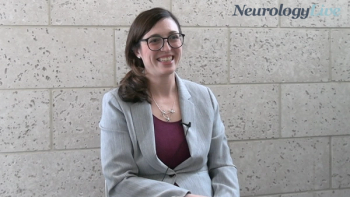
The assistant professor of neurology in the Perelman School of Medicine at University of Pennsylvania discussed preclinical research on neural repair in multiple sclerosis at ACTRIMS Forum 2024. [WATCH TIME: 4 minutes]

Following the 2024 ACTRIMS Forum, the associate professor of neurology at the Cleveland Clinic Lerner College of Medicine provided insight on the need to build creative trials for multiple sclerosis treatments. [WATCH TIME: 3 minutes]

The Melissa and Paul Anderson President’s Distinguished Professor of Neurology, Perelman School of Medicine, University of Pennsylvania, discussed the promising avenue of BTK inhibitors for addressing progressive multiple sclerosis. [WATCH TIME: 5 minutes]

A recent analysis of a phase 2 trial showed that repeated intrathecal injections of MSC therapy led to significant reductions in serum biomarkers and improvements in neurological function for progressive MS.
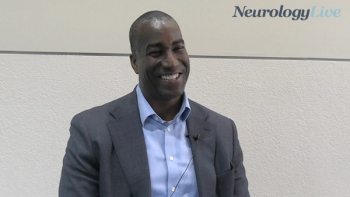
The medial director of Novartis talked about findings from a real-world study assessing ofatumumab treatment for multiple sclerosis presented at the 2024 ACTRIMS Forum. [WATCH TIME: 3 minutes]

The associate professor of neurology at the Cleveland Clinic Lerner College of Medicine discussed several notable presentations and topics from the 2024 ACTRIMS Forum, highlighting advances in MS care. [WATCH TIME: 9 minutes]
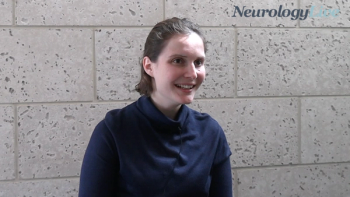
The postdoctoral researcher in the department of neurology at Johns Hopkins School of Medicine discussed findings from a study on the impact of indole 3-lactate supplementation in animal models of multiple sclerosis. [WATCH TIME: 4 minutes]
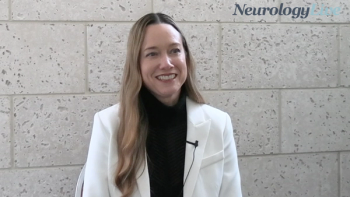
The director of the Comprehensive Care MS Center at Texas Tech University Health Sciences Center talked about findings from a subgroup analysis of Hispanic or Latin patients from the N-MOmentum trial presented at ACTRIMS Forum 2024. [WATCH TIME: 3 minutes]

New data from the phase 3b ENHANCE trial presented at ACTRIMS Forum 2024 demonstrated the smooth transition from intravenous anti-CD20 therapy to ublituximab in patients with multiple sclerosis.
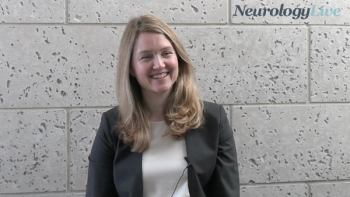
The staff neurologist at the Mellen Center for Multiple Sclerosis at Cleveland Clinic talked about findings from a real-world study assessing novel monoclonal antibodies in patients with NMOSD presented at ACTRIMS Forum 2024. [WATCH TIME: 4 minutes]

The director of the Multiple Sclerosis Program at the Cleveland Clinic’s Lou Ruvo Center for Brain Health talked about findings on a study comparing cognitive profiles in older patients with multiple sclerosis vs Alzheimer disease. [WATCH TIME: 5 minutes]

A machine learning model applied to real-world data in a multiple sclerosis study increased patient inclusion for future real-world studies on assessing patient outcomes and disability progression.
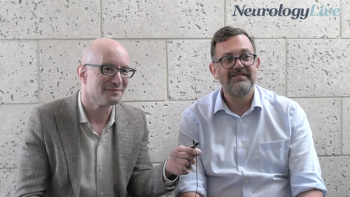
The associate professor of neurology at Icahn School of Medicine at Mount Sinai and associate professor of neurology at University of Colorado School of Medicine talked about the potential of redefining relapses in the landscape of clinical trials for multiple sclerosis. [WATCH TIME: 3 minutes]
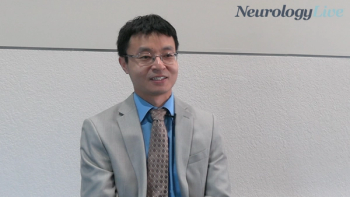
The assistant professor of neurology at The Ohio State University Wexner Medical Center talked about results from an ongoing study assessing biological aging in patients with multiple sclerosis using epigenetic clocks and p16INK4a. [WATCH TIME: 6 minutes]

Phase 2 study analysis of Roche's fenebrutinib reveals similar safety profiles across multiple autoimmune indications, including relapsing multiple sclerosis.
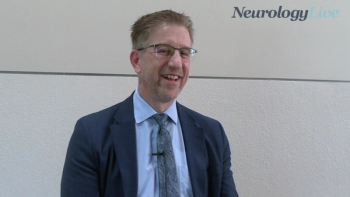
The staff neurologist at the Mellen Center for Multiple Sclerosis at Cleveland Clinic talked about findings from an interim analysis of the phase 2 CALLIPER trial assessing vidofludimus calcium in progressive multiple sclerosis. [WATCH TIME: 4 minutes]

A recent study presented at the 2024 ACTRIMS Forum suggests that increased aerobic glycolysis in normal appearing white matter may be an early feature of multiple sclerosis.

New data from the TRAP-MS trial showed clemastine fumarate's association with increased disability accumulation in cases of non-lesional multiple sclerosis.

A recent study presented the 2024 ACTRIMS Forum showed that a subset of CD8+ T cells preferentially expanded in the cerebrospinal fluid of patients with multiple sclerosis.

A recent study presented at the 2024 ACTRIMS Forum revealed the association between paramagnetic rim lesions and subsequent cognitive decline in patients with multiple sclerosis.